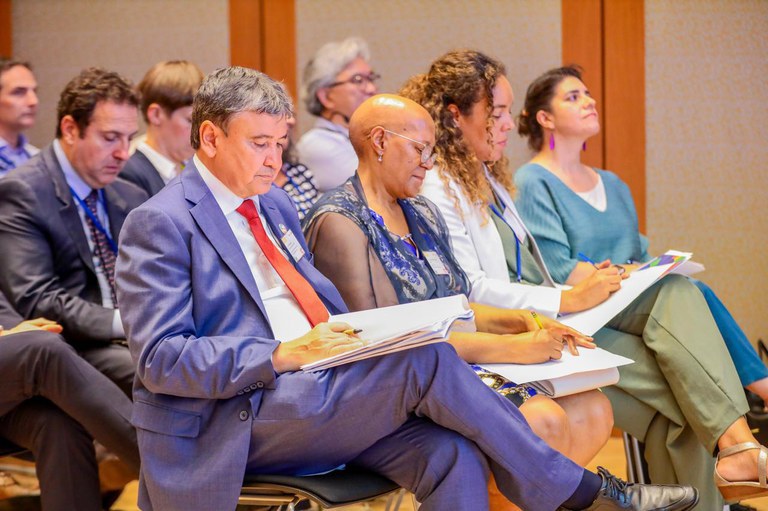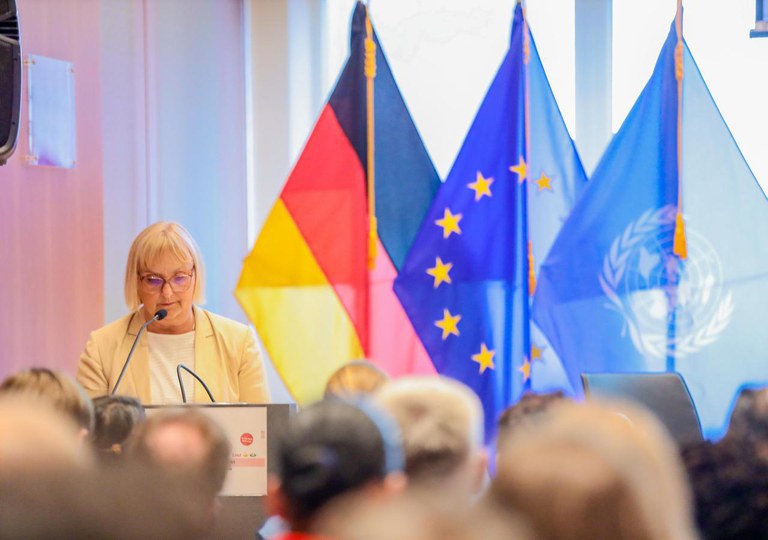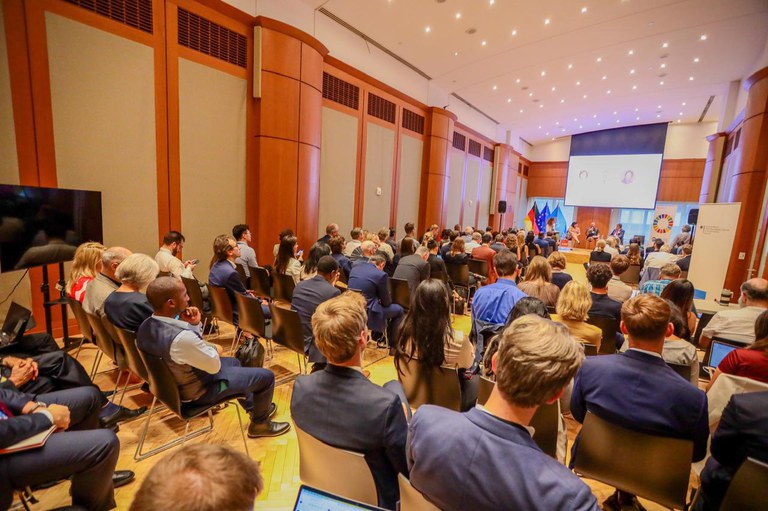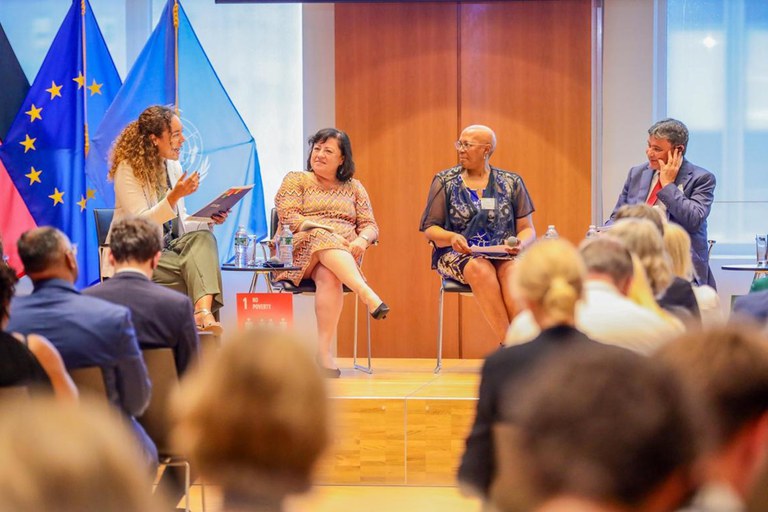Notícias
INTERNATIONAL
Brazilian policies highlighted at UN food security, climate crisis event
The integration of food and nutritional security policies with climate issues was the central theme of the event held in parallel to the High-Level Political Forum on Sustainable Development, held in New York City (USA). The event was organized by the German government, on Monday, July 15. The Brazilian Minister of Social Development and Fight Against Hunger, Wellington Dias, was among the leaders invited to share successful experiences and challenges related to the issue.
Among lectures and panel discussions, the event discussed the connection between three Sustainable Development Goals: eradication of poverty (SDG 1), fight against hunger (SDG 2) and climate action (SDG 13). Based on this premise, leaders from various countries discussed how to combine the transformation of food systems with human development and respect for the environment.
The climate crisis compels us to urgently think of comprehensive actions. It is no longer possible to pursue sustainable solutions that neglect the population” - Wellington Dias, Brazilian Minister of Social Development and Fight Against Hunger
At the event, the head of the Ministry of Social Development and Fight Against Hunger (MDS) outlined the initiatives of the Federal Government of Brazil in structuring social policies that address sustainable solutions. Among these initiatives, the implementation of the School Meal National Program (PNAE) was one of the key experiences he highlighted.
“The Brazilian school meal program offers meals to approximately 40 million students in the public education system across Brazil. This initiative contributes to the nutritional security of students and guarantees an income to small farm workers, as at least 30% of the program’s resources are invested in the purchase of products from family farmers,” he explained.
The minister also highlighted the need to advance policies that protect family farmers from droughts, floods and other extreme climate events. “The climate crisis compels us to urgently think of comprehensive actions. It is no longer possible to pursue sustainable solutions that neglect the population,” he stated.
Furthermore, he called for the creation of jobs that respect nature and allow families to earn a dignified living income. “In Brazil, we have celebrated partnerships with productive agroforestry projects. We have mapped degraded areas, restored the soil and harvested nuts and fruits. As a result, we raise awareness about our ecosystem’s diversity and the importance of vegetation, while also guaranteeing an income to the local population,” said Wellington Dias.
The minister also advocated for the promotion of professional qualification for low-income individuals in renewable energy companies. “This strengthens the decarbonization agenda and simultaneously includes the poorest in crucial activities for our future,” he said.
Social protection and climate change
Regarding social policies amid the climate crisis, Wellington Dias warned about the increasing demand for emergency support for vulnerable families across Brazil. These groups need the services provided by the Unified Social Assistance System (SUAS), as they already reside in areas with difficult access; when affected by climate-related disasters, they experience worsening living conditions.
“We are tragically breaking records with the effects of climate change and the most affected are the poorest. We need concrete actions to protect the most vulnerable from the impacts of climate change. People need to be at the center of our discussions, not only in Brazil but around the world,” stated the minister. “We are confident that poverty, hunger and the climate crisis can be addressed by well-designed policies, with adequate financing and on a large scale,” he added.”
Global Alliance
The best social programs, according to minister Wellington Dias, are those that integrate food, nutrition, fight against poverty, education, health and the environment. To promote this approach, the Brazilian Federal Government has proposed the creation of a Global Alliance against Hunger and Poverty, under the Brazilian G20 presidency.
“The Alliance intends to implement, expand and enhance a set of policies and programs that will benefit the poor, based on evidence. This set will include experiences with income transfers, social protection and school meals, among other things, derived from the collective experience of countries and international organizations,” emphasized Wellington Dias.
At the end of the lecture, the minister emphasized that, beyond the implementation of policies at the national level, another advantage of the Global Alliance is the building of partnerships that will mobilize countries and institutions that are members of the three pillars: the national, the financial and the knowledge base. “We must make it clear that the Global Alliance doesn’t belong just to Brazil, but it’s a contribution for the common effort to achieve the SDGs,” he concluded.
International Forum
The High-Level Political Forum on Sustainable Development - HLPF is an annual official meeting of the United Nations (UN) that aims to discuss the efforts of countries to achieve the Sustainable Development Goals (SDG). It takes place at the UN headquarters in New York, under the coordination of the Economic and Social Council of the United Nations (ECOSOC).
Minister Wellington Dias will participate in the HLFP until Friday, July 17. The objective is to strengthen the Global Alliance against Hunger and Poverty, besides presenting actions implemented by Brazil in the fight against food insecurity and to debate the 2030 Agenda.
Communications Office - MDS







